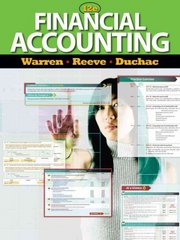Question
after reading the case study below, answer the following question. Identify and address three key challenges and three main advantages that Apollo should consider when
after reading the case study below, answer the following question.
- Identify and address three key challenges and three main advantages that Apollo should consider when extending its global context within Southeast Asia and Eastern Europe, using relevant concepts and theories from Block 2, Session 2.
2.Examine how Apollo can overcome structural and cultural gaps for management while transforming into a multinational by integrating "global expertise" with "local needs" using the principles of integration, divergence, and crossvergence.
3.What are the advantages and obstacles for Apollo in terms of marketing as it spreads globally?
STUDY OF A CASE
Apollo Tyres has accelerated its global roll-out.
Avantika Chilkoti, Financial Times, December 5, 2012
It's not about the largest chinese companies, India, Brazil, and other developing markets that are becoming multinational companies; smaller businesses are as well. Apollo Tyres is the world's sixteenth largest tyremaker by turnover, with annual revenues of about $2.5 billion, but it's still expanding globally. The company is currently spending $1 billion in global growth over the next five years, with the aim of being one of the top ten tyre companies in the world by 2017. Apollo has expanded to supply 118 countries with manufacturing centres in India since its founding in 1972.
A total of 1,595 tonnes of tyres are produced every day in South Africa and the Netherlands. India currently accounts for just 67 percent of sales, with Europe contributing 23% and South Africa 10%. Acquisitions also aided this global expansion. Apollo purchased Dunlop Tyres in South Africa in 2006, granting the company manufacturing facilities in the country as well as rights to sell the Dunlop brand across 32 African countries. The business invested $300 million in 2009 on the Dutch Vredestein Banden BV, that has a network across Europe. With the recent $1 billion investment program, the company's international expansion will accelerate. Apollo denies rumors that it is considering purchasing Cooper Tire, the world's ninth-largest tire manufacturer.
The company's vice managing director director, Neeraj Kanwar, tells beyondbrics: "Southeast Asia is our first priority because we believe there is a demand there. We've seen some green - field possibilities in Indonesia and Thailand to build brand new factories." The strategy's first step, which will take three years to complete, includes a $300 million plant that will manufacture 16,000 passenger car radial tyres and 1,500 truck and bus radials every day. The second phase will include a $200 million plant that will increase capacity to 24,000 commercial vehicle radials and 3,000 truck and bus radials per day. The other goal is Eastern Europe. Kanwar clarifies:
We glanced at Europe a year ago, specifically Poland and Hungary, but put it on hold due to the euro zone economic downturn. So, in two or three years, we'll know where Europe is going, and if all goes well, we'll start building new greenfield sites." Apollo plans to invest $350 million in a plant that will produce 7 million units per year. However, before the situation stabilizes, 50 million will be invested to expand the current plant in the Netherlands to manufacture 7.5 million tyres a year, up from 6 million. This global expansion isn't a surefire way to increase profits. Apollo's South African sector lost Rs584 million ($10.8 million) on revenue of Rs13 billion in 2011-2012, and the firm blames currency fluctuations and uncertainty.
In South Africa, the consequences are a big concern. Kanwar clarifies: "South Africa has been unable to recover from its economic crisis. Imports from China were 8-10% when we arrived in the region, but they are now 50-55 percent. With the mining sector's labor negotiations, manufacturing costs have been that." Apollo's approach is to reduce marginal costs by supplying the entire African and Brazilian markets from South Africa, which would increase plant utilization to 90%. The other issue is where the $1 billion will come from. The money would come from internal cash accruals and a $150 million loan from a willing institutional buyer, according to Kanwar.
However, as of March 31, Apollo had just $30 million in cash and equivalent, down from $33 million the previous year. JP Morgan included Apollo in the pattern of Indian carmakers making international acquisitions using additional debt in a research note in November. The debt-to-equity ratio of Apollo has risen from 0.6 in 2008 to 1.0 in 2012. Apollo made consolidated income of Rs4.1 billion on Rs 121.9 billion in revenue in 2011-12, compared to Rs4.4 billion on Rs89.2 billion in the previous year.
A 32% increase in raw material (rubber) prices against even a background of waning global demand - and a sharp slowing of auto sales growth in India - squeezed margins. Michael Foundoukidis, a Natixis equity analyst in the car industry, told beyondbrics: "Due to Apollo's non-premium positioning, raw material uncertainty affects them more. Rubber prices have risen dramatically since 2007, but raw materials have become more affordable this year, so Apollo's financials may improve." Globalization is a long process.
Given the foreign expansion, India is expected to remain Apollo's mainstay for a few more years. The shares have advanced in lockstep with the Indian market this year, with Apollo Tyres up 30% to Rs84.60, compared to a 28% rise in the Nifty Fifty index. However, if foreign revenues and profits continue to rise as anticipated, investors may start to see Apollo as less Indian and more global.
Step by Step Solution
There are 3 Steps involved in it
Step: 1

Get Instant Access to Expert-Tailored Solutions
See step-by-step solutions with expert insights and AI powered tools for academic success
Step: 2

Step: 3

Ace Your Homework with AI
Get the answers you need in no time with our AI-driven, step-by-step assistance
Get Started


